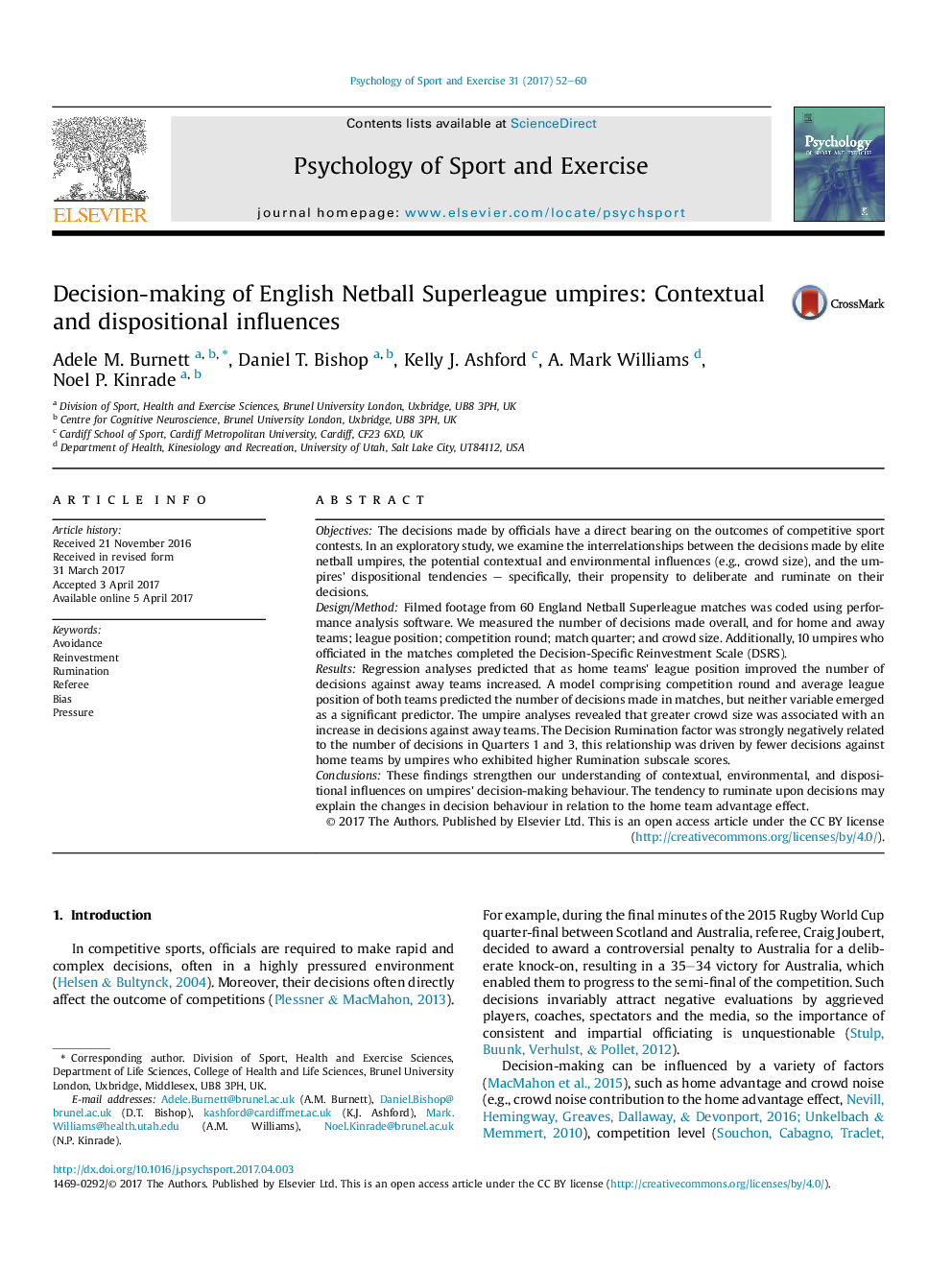| Article ID | Journal | Published Year | Pages | File Type |
|---|---|---|---|---|
| 5036495 | Psychology of Sport and Exercise | 2017 | 9 Pages |
â¢Decision Rumination was associated with inhibited decision making.â¢League position and match prominence were associated with reduced number of decisions.â¢The number of decisions diminished throughout the game.â¢Withdrawal from decision-making may be classified as a type of avoidance behaviour.â¢Home crowd advantage was evident; with increasing crowd size more decisions were awarded against away teams.
ObjectivesThe decisions made by officials have a direct bearing on the outcomes of competitive sport contests. In an exploratory study, we examine the interrelationships between the decisions made by elite netball umpires, the potential contextual and environmental influences (e.g., crowd size), and the umpires' dispositional tendencies - specifically, their propensity to deliberate and ruminate on their decisions.Design/MethodFilmed footage from 60 England Netball Superleague matches was coded using performance analysis software. We measured the number of decisions made overall, and for home and away teams; league position; competition round; match quarter; and crowd size. Additionally, 10 umpires who officiated in the matches completed the Decision-Specific Reinvestment Scale (DSRS).ResultsRegression analyses predicted that as home teams' league position improved the number of decisions against away teams increased. A model comprising competition round and average league position of both teams predicted the number of decisions made in matches, but neither variable emerged as a significant predictor. The umpire analyses revealed that greater crowd size was associated with an increase in decisions against away teams. The Decision Rumination factor was strongly negatively related to the number of decisions in Quarters 1 and 3, this relationship was driven by fewer decisions against home teams by umpires who exhibited higher Rumination subscale scores.ConclusionsThese findings strengthen our understanding of contextual, environmental, and dispositional influences on umpires' decision-making behaviour. The tendency to ruminate upon decisions may explain the changes in decision behaviour in relation to the home team advantage effect.
